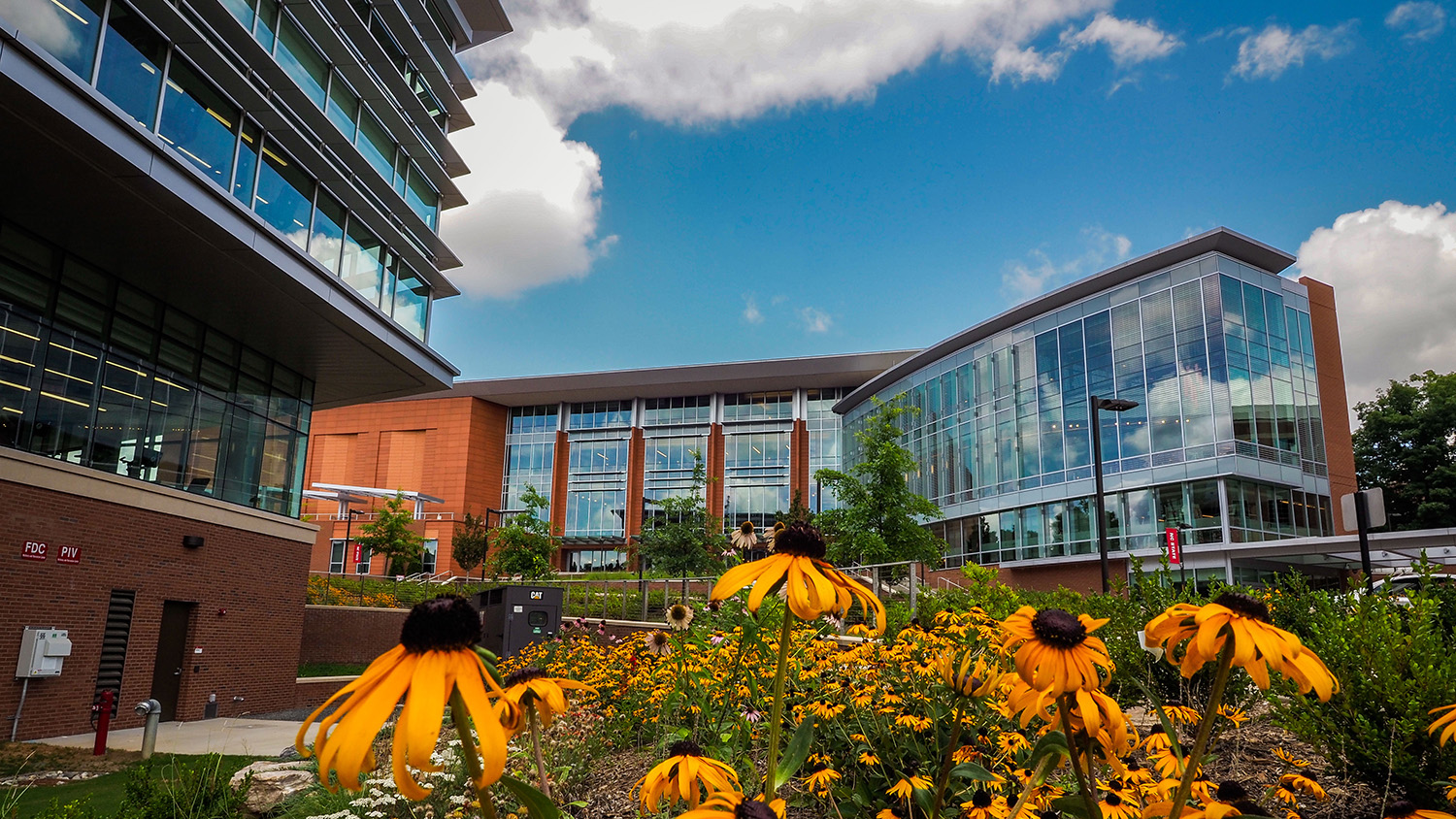DELTA Offers New Hybrid Learning Grant
Use Online and In-Person Methods to Support Learning by Doing
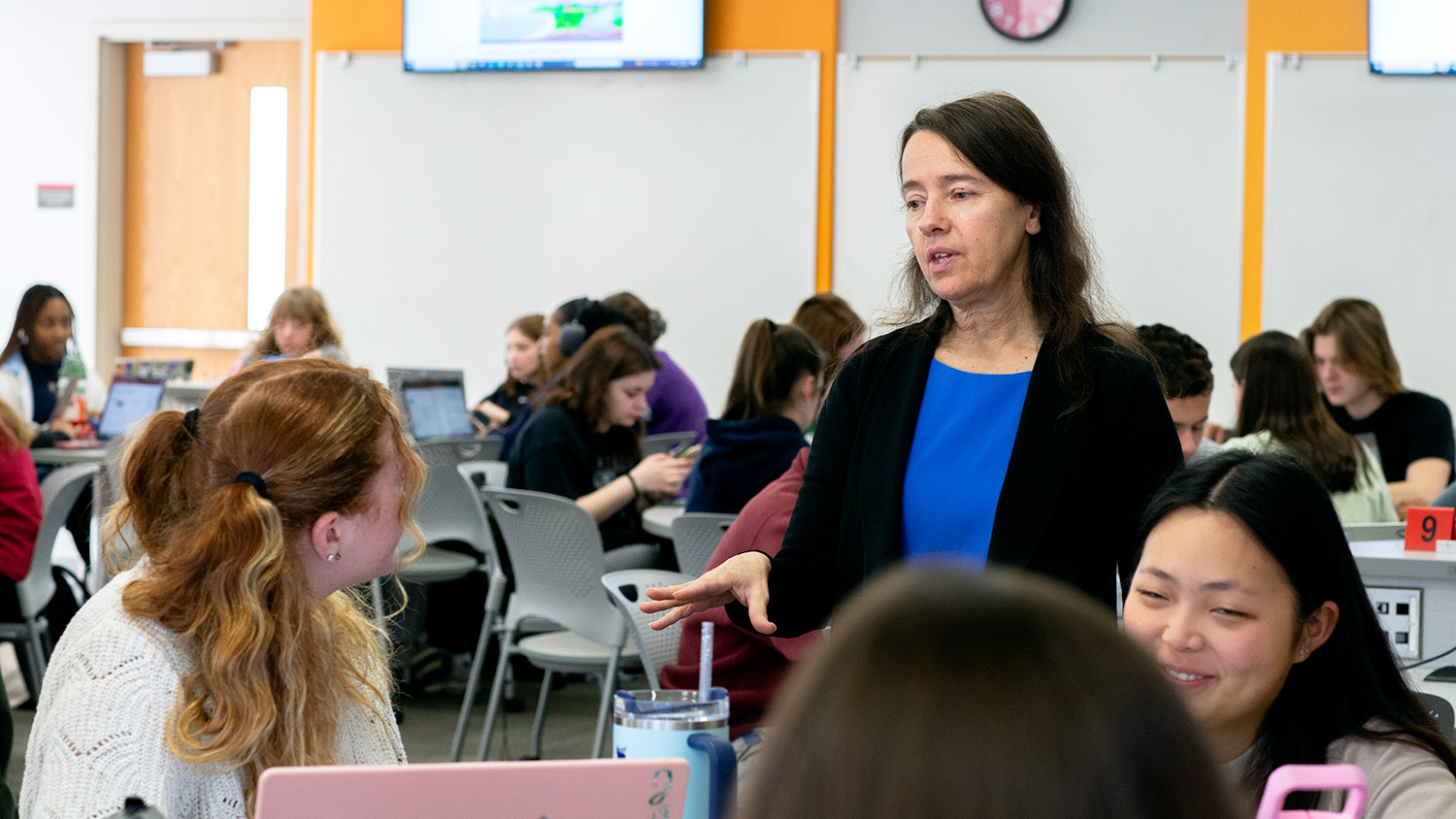
NC State University is committed to empowering the campus community by remaining flexible and adaptable to the evolving needs of our students. Our faculty and staff consistently look for methods that enable students to be independent thinkers and problem solvers of various disciplines, particularly high-impact activities and experiences that emphasize learning by doing.
During the pandemic, educators sought new ways to work with students who were forced to attend classes virtually. Now, as we enter a post-pandemic period, higher education has embraced this concept of hybrid learning, also known as blended learning. More educators are interested in ways to transform traditional pedagogies such as lecturing to using hybrid learning to integrate and take advantage of the strength of online and in-person environments to create engaging, interactive and flexible learning opportunities.
Long before the pandemic, DELTA began working with instructors using DELTA Grants in 2014 to redesign courses into hybrid and flipped learning formats. Grant recipients collaborated with DELTA, which led to increased class time for active learning activities, and through assessment, many reported improved learning outcomes.
Teaching Professor Molly Fenn, a 2015-2016 DELTA Grant recipient, wanted to develop a flipped course for her MA 231: Calculus for Life and Management Sciences for several years before applying for a DELTA Grant. The additional resources provided by DELTA supported the transformation process she needed to make her ideas happen.
“Working with the team at DELTA gave me great insight into how to structure the learning materials for the course,” Fenn said. “And the grant allowed me time to work on the redesign and made me accountable so things got done on a reasonable timeline. I’ve been able to use the skills and strategies DELTA taught me in the years since to make other courses I teach even more student-centered and well-designed.”
The team from that grant later published a paper titled “Utilizing a Blended + Flipped Learning Approach in a Calculus for Life and Management Sciences Classroom” in Problems, Resources, and Issues in Mathematics Undergraduate Studies (PRIMUS), a leading journal for exchanging ideas about teaching collegiate mathematics.
Since that project, DELTA has iteratively developed a hybrid/flipped course design framework by working with 20 instructors from various disciplines to apply and test the design strategies in different course contexts. DELTA will continue to use and refine this framework in new grant projects to maximize the benefits of hybrid and flipped pedagogies and technologies to support student success at NC State.
The Rationale Behind Hybrid and Flipped Learning
When discussing hybrid learning, understanding the unique differences between traditional lecture, hybrid learning, and flipped learning is key:
- With a traditional lecture, you have mostly in-person learning. Students are expected to be in the classroom where the bulk of the instruction occurs and are expected to complete homework after class.
- Hybrid learning includes any combination of asynchronous or synchronous online learning and in-person learning, which might or might not use active learning pedagogies.
- In flipped learning, as a specific form of hybrid learning, students participate in asynchronous online learning that prepares them for in-person active learning. Rather than using class time primarily for lectures, the majority of that time can be spent with hands-on application activities, oftentimes in groups or pairs, that require higher-order thinking.
The Challenges and Solutions of Hybrid and Flipped Learning
The essence of hybrid learning using a “flipped” classroom is to move lecture-based learning, either partially or fully, to an online environment to allow more class time for active learning, which can benefit from peer interactions and instructor guidance in an in-person environment. However, the move to this format does not come without challenges.
Students in a flipped-learning environment might be unclear on the expectations and the format of the course. Additionally, some students look at online learning before class as “I have to teach myself” and are uncertain why they need to attend class. Further, students who are early on in their educational journey might not have fully developed the self-regulated learning skills necessary to be successful in a flipped-learning classroom.
To address these challenges, the hybrid/flipped course design framework conceptualizes the course learning process as sets of hybrid/flipped learning (HFL) cycles and self-regulated learning (SRL) cycles that are integrated with each other during the semester.
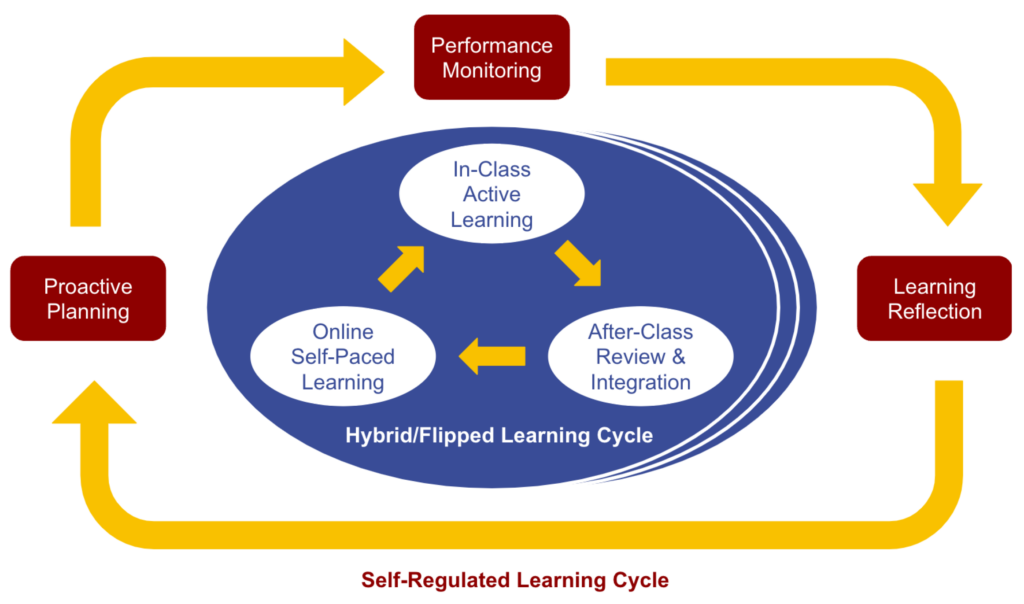
HFL cycles help students develop knowledge and skills through steps that include online self-paced learning, in-class active learning, and learning review and integration. SRL cycles help students take ownership in hybrid and flipped learning through self-regulatory processes, including proactive planning, performance monitoring, and learning reflection.
Instructors’ First-Hand Experiences of Redesigning Courses
Although the concept of modifying a course’s design and structure can feel like a formidable task, DELTA is available to provide a framework for success.
Senior Lecturer Lisa Paciulli received a 2022-2023 DELTA Grant to redesign her sections of the BIO 181: Introductory Biology course but was initially resistant to the idea of moving to a fully flipped format.
“I resisted making most of the changes, namely entirely flipping my course,” Paciulli said. “I felt like I knew something just would not work for my students. I kept bringing this up, and Dr. Shen (DELTA Instructional Designer) always listened and slowly coaxed me and the conceptual grant work (online learning materials) forward. She also came up with these Activity Learning Logs on which my students can do their in-class work and then continue their homework on the same document. This alleviated several of my concerns and will help my students do their work and keep it organized in one place.”
Paciulli completed her course redesign before the Fall 2023 semester started.
“It is like a miracle that all of the work on the grant was completed because it was SO MUCH WORK!!!” Paciulli said.
Three weeks into teaching the redesigned course, she emailed the DELTA team with excitement and an update on the progress.
“Although we are still working out some minor kinks here and there, I absolutely LOVE this method and love teaching an entirely flipped class every class period!” Paciulli said. “Also, I think that the students mostly like it, too!”
Later that semester, in her feedback on a DELTA Grants survey regarding how her instructional practices have changed as a result of the project, Paciulli explained in detail the benefits that she observed.
“A course that I teach approximately four times a year, I am now teaching entirely differently, as it is a fully flipped course right now,” Paciulli explained. “The process has been amazing for me and even better for the students. Now I can tell immediately during class what students are misunderstanding, then I poll them on their answers on Top Hat, and next I ask them why they chose the wrong answer. After they tell why they made that choice, I can better explain to them why that answer is wrong. There are fewer nuanced misunderstandings and mislearnings slipping by unnoticed.”
Most importantly, Paciulli found the experience of using a flipped learning model a “game changer” for her course.
Instead of being the sage on the stage at the front of the room, I am more a guide on the side, with freedom to circulate around the room and chat with students,” Paciulli said.
“Because of this, I feel more connected to more students than ever before and vice versa. I can also answer questions and fix minor mistakes and misconceptions on the spot.”
Paciulli and two other instructors co-presented with DELTA about their stories of revamping their courses using hybrid and flipped learning at the 2024 NC State Conference on Faculty Excellence. That presentation included results showing that students in Paciulli’s hybrid/flipped course taught in Fall 2023 scored significantly higher than students in her traditional lecture course taught in Fall 2022 in all four exams that were kept the same format. There were also improvements in students’ perceived learning outcomes, learning interests and motivation, sense of belonging during class, and course satisfaction, with minimal increase in students’ self-reported cost of time and effort.
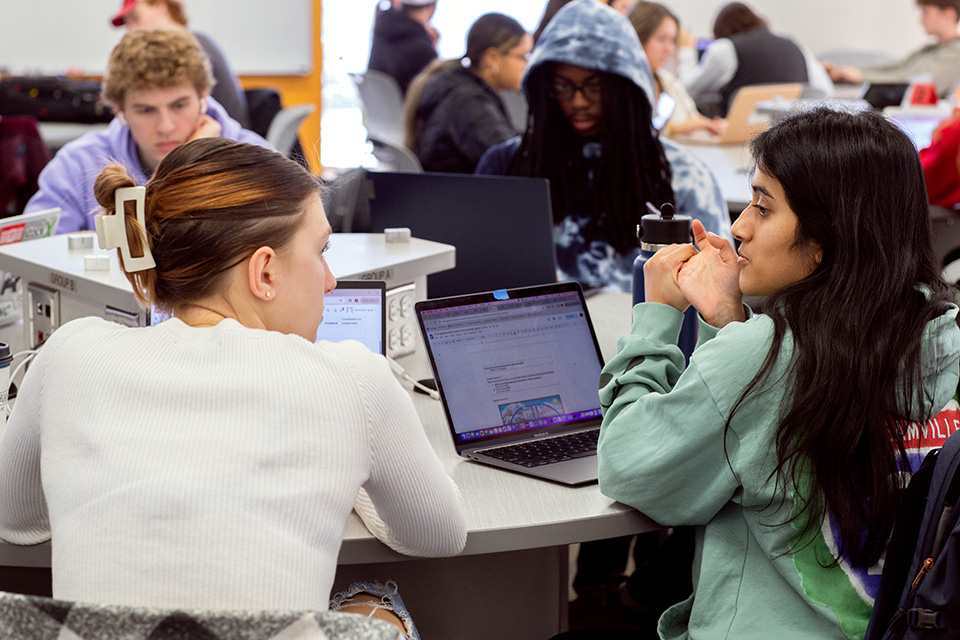
Similar to Paciulli, other faculty who have collaborated with DELTA share positive feedback and experiences.
Assistant Professor Lucie Guertault, a 2022-2023 DELTA Grant recipient, found the structure DELTA provided when flipping her BAE 200: Computer Methods in Biological Engineering crucial to the success of the project.
“DELTA team helped me find the ideal course structure that combined online and in-class learning activities and assignments and turned it into a weekly course schedule,” Guertault said. “My Moodle site was easy for students to navigate and find resources and assignments, with a course roadmap that really helped students stay on track. The financial support also allowed me to hire an undergraduate to help with development. Flipping a course is a lot of work, and I couldn’t have done it that fast without the help from DELTA.”
Associate Teaching Professor Sarah Khan, a 2018-2019 DELTA Grant recipient, found the structure of the grant process invaluable as she redesigned BUS 340: Information Systems Management.
“For me, converting this traditional course into a blended/flipped design was an overwhelming task, especially with my lack of experience in this pedagogical domain,” Khan said. “I am so glad I sought help from the DELTA team. With a systematic approach, we were able to design and deploy a brand new course within a year. The design was so robust that it withstood the challenges of pandemic and post-pandemic learning expectations.”
Khan later shared her course design in a presentation titled “Blended Learning Design with Time Boxes: An Agile Learning Environment” at the 2021 Teaching Professor Conference. She went on to become a DELTA Faculty Fellow the following year and continued to explore and share hybrid and hyflex course delivery methods.
Associate Teaching Professor Stephanie Jeffries, a 2020-2021 DELTA Grant Recipient, was also appreciative of both DELTA’s commitment to the big picture and attention to details. When she needed to take FOR 339: Dendrology to a hybrid format, DELTA was there to assist.
“The instructional design team at DELTA helped me think through the learning outcomes and carefully consider the benefits and challenges of a flipped course design,” Jeffries said. “Redesigning my Moodle page helped me communicate weekly expectations clearly with students, and helped them stay on track with both the in-person and online components.”
Jeffries clearly understands and experiences the advantages of using online interactive lectures over traditional in-class lectures.
“Creating interactive lecture content using PlayPosit means that I can give students practice learning and applying the extensive vocabulary introduced in my course,” Jeffries explained. “For example, in a traditional lecture, only a few of my 100+ students volunteer to answer questions in the large lecture setting. But if I ask that same question in PlayPosit, I can be sure that every student is engaging and getting practice applying and using the correct terms.”
Jeffries also highlighted the flexibility gained in using the hybrid/flipped course format.
“Students have a full week to complete online lectures,” Jeffries said. “When students are on campus, the most critical element of the course — field labs — are retained. I use class time for additional drop-in hours and work with small groups of students on optional hands-on practice and study tips. The added flexibility makes a demanding course more accessible to students with long commutes, challenging work schedules, or stressful caregiving responsibilities.”
Jeffries’ FOR 339 course was further enhanced with a non-credit prep course and a plant identification tool through the same grant. It also won the 2022-2023 Gertrude Cox Award for Innovative Excellence in Teaching and Learning with Technology at NC State.
Learn more from the instructors and their experiences with hybrid/flipped learning and working with DELTA.
The New Hybrid Learning Grant: What to Expect
These previous projects were run as traditional DELTA Grants projects with individual project teams. After meeting each other at the grant orientation, the instructors did not interact again.
For the 2023-2024 grant cycle, however, DELTA applied a cohort-based pilot to three grants using a revised grant process where instructors attend cohort sessions to learn about the design strategies and share ideas and feedback with each other, as well as attending individual mentoring sessions with an instructional designer to work on their individual hybrid/flipped course design. Beginning with the 2024-2025 grant cycle, a new two-year Hybrid Learning Grant will be available in the same cohort format.
During the first year of the grant process, instructors can expect bi-weekly cohort sessions with DELTA instructional designers and peer instructors as well as individual mentoring sessions. Throughout the first year, instructors will:
- Analyze and define the scope of the project.
- Design the big picture of the course.
- Prototype a sample learning cycle for a specific topic.
- Apply the sample learning cycle to more topics, while fine-tuning the design details.
- Augment the design with self-regulated learning support and course orientation materials.
- Plan the evaluation study.
- Finish the design and development of course materials.
Instructors will also collaborate with the DELTA Research and Assessment team to collect baseline assessment data during the first year as well as data from the redesigned course during the second year based on the evaluation plan to assess the impact on student learning and perceptions.
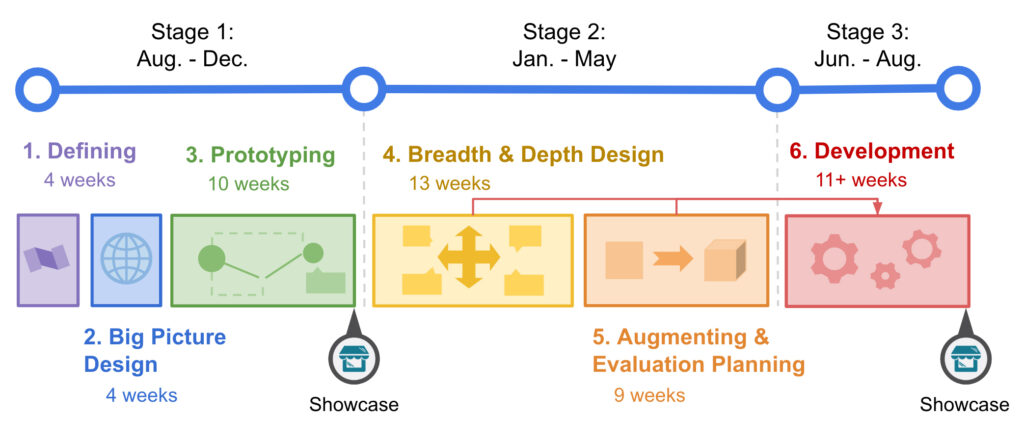
DELTA expects to increase the Hybrid Learning Grant cohort size in the future by recruiting faculty mentors who have successfully completed the grant process. Moving forward, DELTA aims to develop a community of practice through faculty-to-faculty mentorship to spread hybrid and flipped learning across campus.
Courses with any of the following characteristics might benefit from the Hybrid Learning Grant:
- The number of materials to cover in the course takes up a lot of class time.
- The course emphasizes higher-order learning outcomes that require students to analyze, evaluate, or create.
- Class time would be best used for active learning activities (for example, discussion, problem solving, case studies, projects and so forth) with peer interactions and instructor guidance.
- The course instructor is interested in assessing the effectiveness of the redesigned course and engaging in Scholarship of Teaching and Learning (SoTL) research.
Have questions? Read more about the DELTA Hybrid Learning Grants or general FAQs about DELTA Grants. The 2024 DELTA Grants submission system opens on Monday, April 15 at 8 a.m. and closes on Friday, May 10 at 5 p.m.
- Categories:


